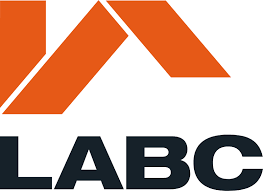At Constructing Excellence Midlands, we are committed to continuously improving and evolving to meet the needs of our members and stakeholders. We value the feedback provided through our recent survey and have taken it seriously in our efforts to enhance our services, events, and initiatives.
CLICK HERE for a summary of the key themes identified from your responses and the actions we have taken or plan to undertake in response.
Introduction
The recent inquiry into Modern Methods of Construction (MMC) and the subsequent letter from Lord Moylan to Rt Hon Michael Gove MP, have ignited crucial conversations within the construction industry. As CE Midlands and through our Theme Groups such as the Smart Construction Group, we are uniquely positioned to address these concerns, leveraging our commitment to innovation and excellence in construction.
Background
The inquiry into MMC, titled “Modern methods of construction – what’s gone wrong?”, explores the challenges and setbacks faced in the adoption and implementation of these methods and had a particular focus on Category 1 Pre-Manufactured 3D primary structural systems or, volumetric solutions. The essence of Lord Moylan’s letter to the Secretary of State underscores the need for a re-evaluation of our approach to MMC, highlighting the gaps between ambition and reality in the realm of innovative construction practices.
CE Midlands Smart Construction Group’s Perspective:
1. Innovation as a Cornerstone: As advocates of smart construction, we believe that innovation is not just about the adoption of new technologies but also about a mindset shift. The inquiry
and the letter serve as a reminder that innovation must be underpinned by robust frameworks, clear guidelines, and an understanding of the practical realities on the ground.
2. Balancing Innovation with Practicality: The challenges outlined in the inquiry point towards a need for a balanced approach. It is crucial to blend innovative techniques with practical, on-site applicability. This includes addressing skills gaps, supply chain readiness, and financial models that support MMC.
3. Collaboration and Knowledge Sharing: The inquiry’s findings underscore the importance of collaboration between government, industry, and academia. As a group dedicated to excellence in construction, we advocate for an increased emphasis on shared learning, best practice dissemination, and joint ventures to overcome the hurdles identified.
4. Policy and Regulatory Frameworks: Lord Moylan’s letter calls attention to the need for supportive policy and regulatory frameworks. We propose active engagement with policymakers to shape regulations that are conducive to the adoption of MMC, ensuring safety, quality, and sustainability.
5. Sustainability and Future-Proofing: In line with the global push towards sustainable development, MMC offers significant opportunities for reducing carbon footprint and enhancing resource efficiency. Our theme groups, Smart, Climate and Future Skills, all emphasise the integration of sustainable practices within MMC, aligning with environmental goals and future-proofing the industry.
Conclusion
The inquiry into MMC and Lord Moylan’s letter provide critical insights into the challenges and opportunities within the field of smart construction. CE Midlands’ Smart Construction Group, and the wider organisation is committed to spearheading initiatives that address these challenges, fostering an environment where innovation thrives alongside practical and sustainable construction practices. Our goal is to be at the forefront of transforming the construction landscape, making it smarter, more efficient, and resilient for the future.
“Don’t miss out on the opportunity to be part of what’s happening in this region. This is a golden opportunity for the construction sector in Shropshire and Telford & Wrekin to come together, support each other and help build our supply chain and the local economy.”
That was the message from one of the county’s leading contractors ahead of the Project Pipeline event on March 22 in Shrewsbury.
Be Bold Media spoke to Paul Inions, managing director of McPhillips (Wellington) Ltd and a committee member of Shropshire Constructing Excellence, about why businesses working across the industry should attend and why being part of a network is so important.
Q: Your company is celebrating 60 years this year, how has McPhillips’ core business changed over the years?
A: The business has evolved from a small sub-contractor to a main civil engineering contractor to what we are today – an mulit-disciplinary main regional contractor. We’re an award-winning partner to a number of local authorities and private sector companies which trust us to deliver on budget and on time. We used to just dig holes, now we do sewers, dogs’ homes, fire stations, a crematorium – pretty much anything!
We have 250 people directly employed by us, and probably 150 sub-contractors who can be anything from a one-man band to a small company. We also have a strong local supply chain to support us with building developments.
Q: What are the main headwinds facing the sector at the moment and how is McPhillips facing the challenges?
A: I would say the instability in the economy is the biggest challenge facing the industry at the moment. Our margins are very, very thin. We always work on fixed price contracts, but our supply chain can’t subscribe to that so any volatility in the market causes very big issues.
I read somewhere that 12 construction firms a day are going to the wall. The problem is, every time a firm goes bust, they take others with them. We have seen some very big construction businesses go under in recent years, but it’s the impact on the supply chain which goes unnoticed, this is livelihoods we are talking about. It’s very difficult.
Q: Is it important for McPhillips to be delivering projects locally and working with local people?
A: The local economy is very important to us – we strive to work locally. I live between Telford and Dudley so I drive in on the ‘rabbit run’ every day – it frustrates me enormously that I follow our competitors’ vans into the county and see our vans going the other way. We are all guilty of this but there is more than enough work in the county to keep us all busy.
Q: How important is a strong local supply chain? And how important is it for the sector to be aware of projects coming up which they might be able to be part of?
A: A strong local supply chain is vital, and I bang the drum for us to do business with the local supply chain wherever possible. It’s not always possible, and sometimes that’s just because we don’t always know who’s out there, but the more the better. Using local contractors and suppliers means we keep the Shropshire pound in Shropshire.
For example, we have two projects going on at Hortonwood in Telford. I would imagine that we could get 70 to 80 per cent of everything we need from businesses based in Telford or Shropshire. It frustrates me that we don’t, but we do strive to buy local where possible.
Q: How do to you see the role of SCE – the Midlands Constructing Excellence Shropshire club – developing Shropshire’s construction sector and the supply chain?
A: It’s an avenue to network, where we can share issues with recruitment, wages, whatever. We all have our own challenges which we deal with, but the issue someone else might be having today may be something we dealt with three weeks ago – if we have an opportunity to share solutions, we should.
We can try to help each other and in turn save time and costs.
I think it’s easier to get to talk to people at networking events. People often say they can’t get hold of me at the office, but at a networking event it’s easier to chat for a couple of minutes and hand over a business card than it is to try to cold call someone.
Q: Who should attend the Project Pipeline event?
A: SCE is a group of like-minded people supporting businesses in Shropshire and Telford & Wrekin in the construction sector. The Project Pipeline event will give an overview from both councils of what big projects are coming up over the next 10 years, and it is an opportunity for all to get involved.
There are lots of businesses that could benefit, from main contractors to the wider supply chain.
In Telford, Station Quarter will bring a boost to the local economy. There is still a big need for housing in Telford and Shropshire, so I expect national housebuilders will be looking to develop here.
In Shrewsbury, the North West Relief Road will generate further development opportunities as new people come into the county. It’s a bit like our HS2 – love it or loathe it, HS2 brings a lot of opportunities!
Q: The event on March 22 is a ‘multi-billion opportunity’ – what’s your message to companies who haven’t booked yet?
A: Don’t miss out! Don’t miss out on the opportunity to be part of what’s happening in the county. We would all be kicking ourselves if we didn’t get an opportunity just because we haven’t subscribed.
This month Martyn Jones asks what we should make of the recent flurry of economic data and what it reveals about our growth and productivity?
As the think tank UK in a Changing Europe (UKICE) puts it: “The UK’s economic performance … has been at best mediocre. While this is partly the result of policies such as austerity, and while Brexit has reduced growth, it also reflects long-standing structural weaknesses.”
The UK’s growth for 2023 was 0.1 percent, just avoiding a recession. But if we take per-capita GDP as a measure better reflective of the way our economy is performing, it fell by 0.7 per cent last year and is 1.5 per cent lower that it was at the time of the last election, and just ahead of formal Brexit.
The solutions to our low growth and productivity are well rehearsed: More business investment, greater innovation, and improved skills (particularly mid and lower-level ones), better infrastructure, and tackling regional inequality are usually top the list.
And there are strengths too that we in the UK can draw on to grow and become more productive: Political stability (although somewhat lacking recently), strong institutions, recent improvement in the performance of schools, the expansion of higher education, our world class universities, and the strength of our legal and financial services.
Then there are the opportunities for growth in the transition to a net zero economy, which presents unprecedented opportunities for the UK to become a more resilient and productive economy whilst also tackling climate change. In stark contrast to the rest of the economy, which at best is flatlining, economic data showing that the UK’s green economy grew by 9% in 2023.
Clearly the value of green industries like renewables, eco-friendly heating and energy storage is growing and will help unlock further cash for the UK, according to economists at the Confederation of British Industry (CBI). They argue private investment and an industrial strategy are key to unlocking growth and the transition to a green economy.
Are we in construction ready to play our part in raising productivity and transitioning to net zero? Our performance over the last several decades is not encouraging given our reputation for being among the lowest productivity sectors across the economy.
A report published in 2017 by McKinsey Global Institute stated that construction sector productivity has largely remained stagnant over the past several decades despite the technologies and new forms of cooperation presented by the ICT paradigm.
Meanwhile, in manufacturing benefitting from the technologies and ways of working sparked by the ICT paradigm, particularly by lean supply chain management, productivity has almost doubled during the same period meaning that a manufacturing worker can now produce twice as much in the same number of hours whilst increasing quality.
Are we in construction wilfully opposed to innovation and increasing productivity? Or is construction so different our productivity performance cannot be judged in the same way as other sectors of the economy: The perennial we are backward vs we are different argument.
Our culture is cited as a major barrier to change, often being described as traditional and averse to new ideas. And our market structure and operating system are seen as acting against innovation and raising productivity.
We lack the overall and consistent single-point of leadership that is evident in the automotive industry with major car assemblers leading and driving much of the sector’s innovation, raising productivity, and now leading the charge to net zero.
Much of the production in construction is still being tied to specific locations making it more difficult to industrialise. And conditions differ significantly for every client and building type, making flexibility and the securing of scarce resources more of a priority for us in construction than lean efficiency.
Then there is our all too often and deliberate separation of design and construction. Imagine this happening in the automotive industry, with every car buyer taking their own bespoke design drawings to a manufacturer.
So, what are the solutions? The results from a recent RICS Global Construction Monitor (GCM) survey offers some ideas in the ways the respondents answered one of their questions: “How do you plan to increase labour productivity in your business?”
At the global level, the following interventions on productivity were ranked as the top two: upskilling the workforce and greater investment in data/digitisation. The respondents to the survey ranked improving procurement and supply chain management in third place – implying more collaborative inter-organisational relationships, more seamless processes, and greater focus on internal and external customers.
Constructing Excellence in our regions is well placed to play a role in increasing productivity and capitalising on the opportunities in transitioning to net zero. Clearly our Theme Groups – Future Skills, Smart Construction, Climate Crisis all have a role to play.
And there is Constructing Excellence’s new Behavioural Framework: A tool providing a means for leaders from across the movement to model inclusive and collaborative behaviours and provide a means for reflection, dialogue, and action to drive a more collaborative culture and in doing so raise productivity and support our transition to net zero.
The Education Landscape can be confusing for businesses. From A Levels to T Levels, navigating our education system is complex.
Please visit the Education Landscape website HERE where you can find out more information and download the resources. They share free resources which include different ways you could connect with your local education providers to support you with your skills and recruitment needs.
They have published The Education Landscape: A Guide for Employers – This is an easy to understand and independent overview of the options for engaging with the education and skills landscape, plus the benefits of doing so. The Guide is backed by leading business organisations and also provides information on how technical education is changing to better meet business needs.
And also The Education Landscape: Index – The Index is a comprehensive list of the range of activities and schemes businesses may be asked to get involved with. There could be different terms being used in your local areas, but the Index contains the main categories you need to know about. The benefits of each activity and the likely time commitments are included too.
Welcome to our March Newsletter.
On 08 February we held our Annual Review and AGM followed by an excellent lunch at the Burlington Hotel in Birmingham.
It was well attended and the Annual Review explained what a busy and successful year we had had including forming new clubs.
There was a report from each of the six clubs including the new chairs Alex Tabb, who reported on the East Midlands Club, and Jasmine Craft who gave the report on the Lincolnshire Club. Andrew James gave a report on the ever busy and successful Hereford and Worcester Club which he has chaired for many years. Mark Barrow now chairs the Shropshire Club and Catherine Windibank chairs the Coventry & Warwickshire Club. Andrew Carpenter announced that the Birmingham & Black Country Club has appointed Faye Beaman, an Associate at Arup, as the new chair. Molly Shaw, the new chair of G4C also gave an update and the immediate past chair Nikita Badesha was thanked for all her hard work and congratulated on her successful period as chair.
There were also reports from the six Theme Groups describing the excellent work that each Group is carrying out.
At the AGM there were the usual administrative tasks to be undertaken with the existing Leadership Board members reappointed but with a change going forward as Tom Woodhead whilst remaining as Treasurer has taken on the new role of Deputy Chief Executive to support Andrew Carpenter and provide some succession planning for the management of CE Midlands.
There are a number of major events coming up with the G4C Midlands Dinner on 21 March. Please come along to support G4C after all, they are the future of our industry and of CE Midlands.
I hope you will find the information in this edition, informative and, hopefully entertaining.
Happy reading.
• Is your professional services business maximising the potential of digital technologies including AI?
• What is the impact of digital technologies on your current business model?
• Could new digital technologies help you achieve a new sustainable business model?
The Offer:
Led by Professor Tim Vorley OBE and Professor Roger Maull, two of UK’s leading business transformation academics, Digitlab will facilitate a workshop with your strategy and innovation leaders to unpack your current business model and assist your thinking to maximise the potential of new digital technologies in your business. The workshop will provide you with the tools to analyse your digital transformation readiness and emphasise integrating Environmental, Social and Governance (ESG) principles into your business model.
Cost: Free (we may request to use some of the anonymised findings of the workshop in our research).
Workshop Duration: 3 hours approximately.
What is Digit Lab? Digit Lab is a £12 million research project led by The University of Exeter. It aims to accelerate digital innovation for growth, impact, and transformation of Large Established Organizations (LEO’s) in the UK. One of the key project initiatives is to examine the effectiveness of LEO business model, inform their digital transformation processes, and refine existing and potential new business models.
Next Steps: Please contact Michael Fairbairn: Senior Impact and Partnership Development Manager, for further information and/or complete this form to register for the workshop.
Provided by Richard Whittaker (Citizen Housing), Tim Bush (Baily Garner) and Andrew Carpenter (CE Midlands)
Introduction:
In the dynamic landscape of the West Midlands, affordable housing emerges as a critical cornerstone in fostering inclusive communities and addressing housing challenges, as part of our national infrastructure. This thought leadership piece explores the evolving role of affordable housing in the region, analysing current trends, addressing challenges, and proposing innovative solutions.
Current Landscape:
The West Midlands faces a growing demand for good quality affordable housing, highlighting the urgency for effective housing policies. With an increasing population of diverse needs, there is a pressing necessity for sustainable, inclusive, and community-centric housing solutions.
Challenges and Opportunities:
Examining challenges such as limited resources, both human and materials, outdated infrastructure, is the electrical grid fit for purpose, and societal disparities, this piece delves into the potential of public-private partnerships, community engagement, and technological advancements in shaping the future of affordable housing. Identifying opportunities for collaboration between government, private entities, and local communities becomes pivotal.
Community-Centric Approaches:
Highlighting successful models from within the West Midlands and beyond, this thought leadership piece underscores the importance of community investment. It explores initiatives that empower residents, encourage affordable cohesion, and prioritise the creation of vibrant, sustainable neighbourhoods, after all housing is much more than just bricks and mortar!
Innovation and Technology:
Analysing the role of technology in modernising affordable housing, this piece explores how innovations like smart infrastructure, sustainable design, and data-driven solutions can contribute to more efficient and responsive housing environment. Embracing digital transformation is crucial for meeting the evolving needs of residents.
Policy Recommendations:
Offering actionable insights, this thought leadership piece provides policy recommendations for stakeholders at various levels. From streamlining regulatory processes to incentivising sustainable development, the focus is on creating an environment where affordable housing can thrive and adapt to evolutionary change.
Conclusion:
As the West Midlands navigates the complex terrain of affordable housing, a forward-thinking and collaborative approach is paramount. This thought leadership piece aims to inspire conversations, drive innovation, and foster a shared commitment to creating a housing landscape that truly serves the diverse and evolving needs of the region’s residents.
If you would like to be part of the conversation, please join the CE Midlands Social Housing Forum and learn & share knowledge with other like-minded, forward-thinking professionals.
Please visit: https://www.cemidlands.org/join-now/
















